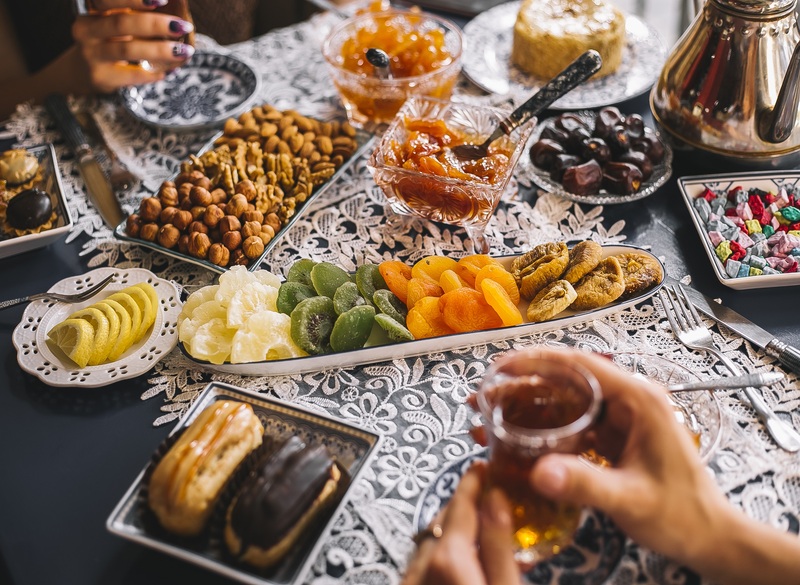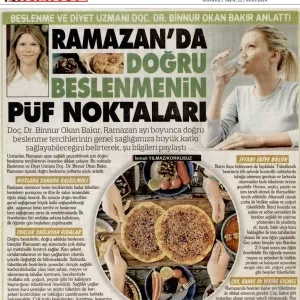Avoid These Foods at Suhoor

Assoc. Prof. Dr. Binnur Okan Bakır highlights that making the right nutritional choices throughout Ramadan can significantly contribute to our overall health while cautioning that inappropriate food choices and dietary habits can cause substantial harm to our health.
The month of Ramadan is a time when, after spending the entire day fasting, family members and friends gather around iftar tables adorned with various dishes, sometimes leading to overeating and significant changes in dietary routines and health. However, making healthy nutritional choices during Ramadan can empower you to maintain good health, giving you the energy and vitality to enjoy this time fully.
Assoc. Prof. Dr. Binnur Okan Bakır, the Head of the Department of Nutrition and Dietetics at Yeditepe University, provided information on how to nourish ourselves during Ramadan.
Assoc. Prof. Dr. Bakır highlighted that not only the choices of food but also the portion sizes of the meals consumed and the frequency of meals between iftar and suhoor are important. By making the right choices during this period, you can take control of your health and greatly contribute to your general well-being. Having suhoor at the beginning of the day and splitting iftar into two main meals, along with consuming small snacks, can help regulate your blood sugar and keep you energized throughout the day.
"Proper Nutrition Ensures Metabolic Control"
Binnur Okan Bakır mentioned that individuals who eat the right foods at the right frequencies can achieve much better metabolic control during Ramadan, noting that improvements in average blood sugar levels and blood fats are known. Assoc. Prof. Dr. Bakır advised, "It's important that the food consumed at suhoor includes fresh vegetables, fruits, and unprocessed grains rich in dietary fiber, along with a source of calcium such as milk, yogurt, or cheese. Consuming nuts and olives that contain healthy fats can also help control blood sugar and extend feelings of fullness. Foods that are very salty, fried, or greasy, and processed meat products like sausages, salami, and bacon should be avoided."
"Split Iftar into Two"
"Controlling the portion sizes of foods consumed in one go can prevent unnecessary and unconscious overeating. Dates, olives, cheese, and whole-grain bread can be chosen for starters. Alternatively, soup can be consumed along with salad and yogurt. The second part can include a main meal made of salad and vegetables alongside meat, chicken, fish, or legumes cooked using healthy methods, served with whole grains. For those who go to bed late, a snack 2-3 hours after iftar can be suggested. This snack could include seasonal fruits and vegetables and foods rich in protein and calcium like milk, yogurt, or cheese."
"Tea, Coffee Are Not Water"
S Binnur Okan Bakır also underlined the importance of fluid intake, stating, "It's crucial to pay attention to our fluid consumption as much as our food. It should not be forgotten that the liquid from drinks like tea and coffee is insufficient, and we must drink enough water between iftar and suhoor."

